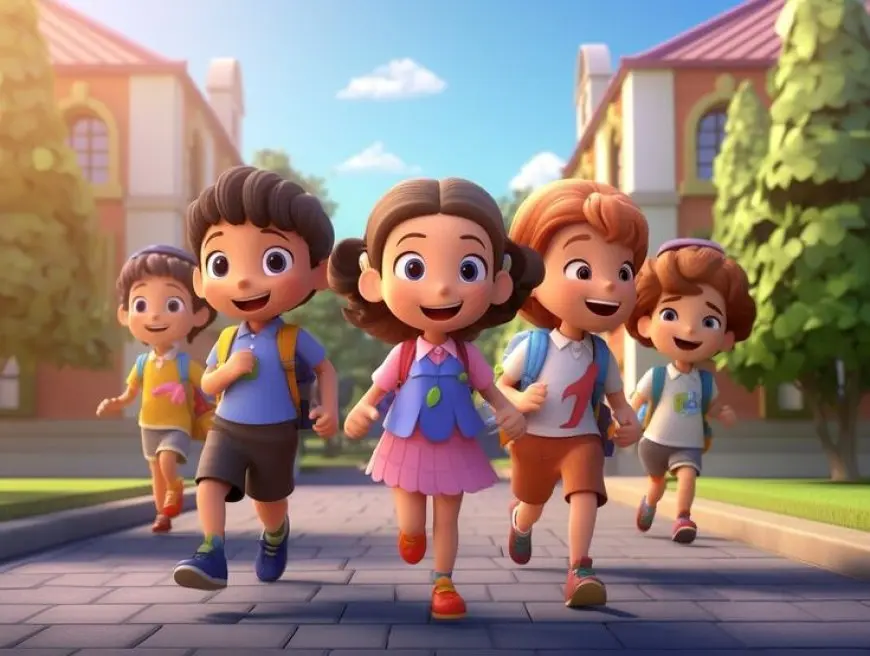The Benefits of Learning Through Failure
The Benefits of Learning Through Failure

Failure is often viewed as a negative experience, but in the context of learning and personal development, it can be a powerful tool. When approached with the right mindset, failure becomes an essential part of growth. It helps students and individuals develop resilience, critical thinking, and problem-solving skills, ultimately fostering a deeper understanding of both their strengths and areas for improvement. Embracing failure as part of the learning process can unlock numerous benefits that go beyond simply achieving success. Here's how learning through failure can benefit students and individuals in educational settings and beyond.
Promotes Resilience and Perseverance
One of the most valuable lessons that failure teaches is resilience—the ability to bounce back after setbacks. Experiencing failure challenges individuals to persevere despite difficulties and to keep pushing forward. Instead of feeling discouraged, those who learn from their mistakes understand that failure is a temporary situation that can be overcome. This mindset is crucial in education, where students often face obstacles in their learning journey. By facing failure head-on and learning how to handle it, students develop the emotional strength needed to tackle future challenges with confidence.
Encourages Problem-Solving and Critical Thinking
When students fail, it often forces them to analyze what went wrong and think critically about how to improve. Failure can spark curiosity, prompting individuals to investigate different approaches, ask questions, and experiment with alternative solutions. This process of trial and error is a fundamental aspect of problem-solving. For example, a student who fails to solve a math problem or write a compelling essay will need to rethink their approach, explore new strategies, and reflect on what could have been done differently. These reflective practices encourage deeper learning and the development of critical thinking skills, which are essential for success in both academics and life.
Fosters Growth Mindset
A growth mindset, as proposed by psychologist Carol Dweck, is the belief that abilities and intelligence can be developed through dedication and hard work. Learning through failure is central to cultivating a growth mindset because it encourages individuals to see challenges and setbacks as opportunities for growth rather than signs of inadequacy. When students understand that failure is not an endpoint but part of the learning process, they are more likely to embrace challenges, take risks, and maintain a positive attitude toward learning. This shift in perspective promotes a lifelong love of learning and encourages a more resilient approach to future obstacles.
Builds Confidence and Independence
While failure may initially lead to frustration, it can ultimately build confidence. When individuals learn how to overcome failure, they realize that they are capable of handling adversity. This boosts self-esteem and encourages a sense of independence, as students begin to trust in their ability to navigate challenges on their own. The more students encounter and learn from failure, the more they realize that they have the tools to succeed, even after setbacks. This self-reliance fosters autonomy in their academic and personal pursuits, which is crucial for long-term success.
Teaches Time Management and Self-Discipline
Failure often arises from not being fully prepared or not dedicating enough time and effort to a task. When students experience failure due to lack of preparation or procrastination, they are forced to re-evaluate their time management skills and work habits. By learning from these experiences, students can develop better organizational skills and learn to prioritize tasks more effectively. In the long run, this helps students become more disciplined, focused, and efficient in their studies, which are valuable traits that will serve them well throughout their academic and professional lives.
Encourages Innovation and Creativity
Failure challenges students to think outside the box and come up with creative solutions to problems. In situations where traditional methods don't work, students must find new ways to approach a task. This encourages innovation, as they explore different methods, experiment with new ideas, and think more creatively. In fields such as science, technology, and the arts, failure often leads to groundbreaking discoveries and innovations. Learning through failure helps students develop the mindset needed to tackle complex problems in creative and unique ways, rather than relying on familiar, conventional solutions.
Improves Emotional Intelligence
Experiencing failure also enhances emotional intelligence, particularly the ability to manage emotions in the face of adversity. Students who learn how to deal with failure in a constructive way develop self-awareness and self-regulation, which are key components of emotional intelligence. By learning to accept failure without letting it overwhelm them, students become more emotionally resilient. They also develop empathy as they understand that everyone experiences failure at some point, and this allows them to support their peers through similar challenges.
Provides Real-Life Learning Opportunities
Failure provides valuable real-life lessons that cannot be fully taught through textbooks or traditional instruction. It allows students to experience firsthand the consequences of their actions, which helps them understand the importance of effort, preparation, and perseverance. The lessons learned through failure are often more memorable and impactful than those gained from immediate success. Students who learn through failure are better equipped to handle real-world challenges, as they have already encountered setbacks and learned how to navigate them with resilience and determination.
In conclusion, failure is not something to be feared or avoided; rather, it should be seen as an essential part of the learning process. By embracing failure, students can develop critical skills such as problem-solving, resilience, creativity, and emotional intelligence. Learning from failure helps foster a growth mindset, builds confidence, and prepares students for the challenges they will face in the future. By reframing failure as a learning opportunity rather than a setback, students can achieve greater success in their educational journeys and beyond.







